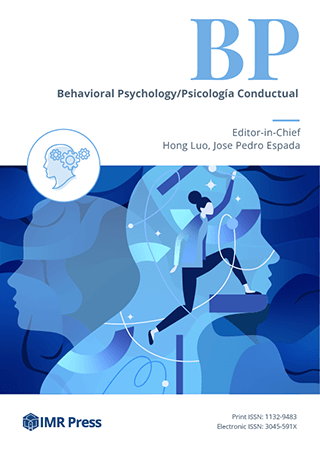Transition Announcement
Behavioral Psychology/Psicología Conductual
Starting from 2025 Volume 33, Issue 1, Behavioral Psychology/Psicología Conductual will be published by IMR Press.
The journal's website has been updated. For the latest information and access to the journal, please visit the new website.
